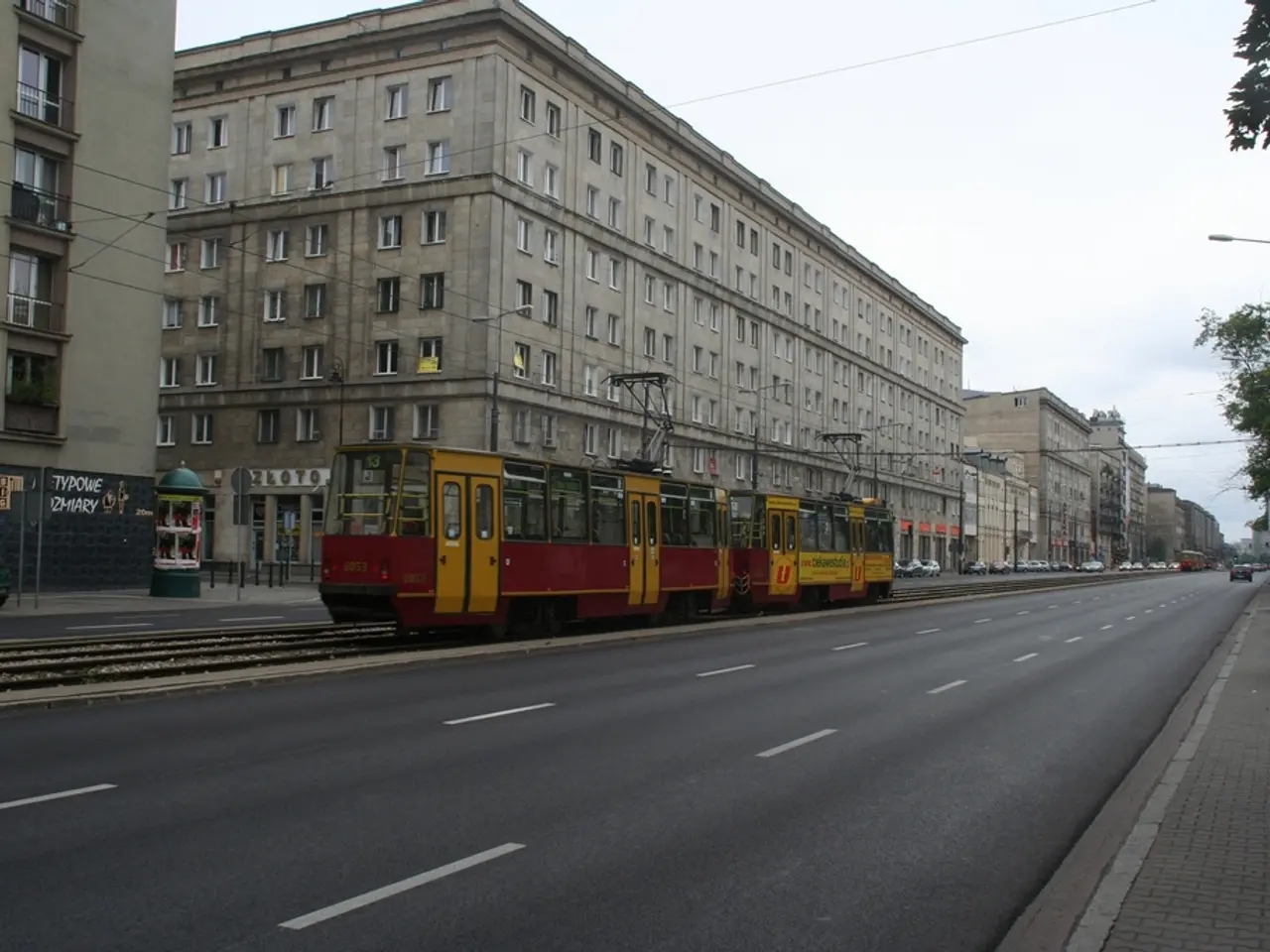Expanding Variant: Dutch Post Increases Delivery Services with Zero-Emission Vehicles
PostNL Aims for Emission-Free Delivery Across the Netherlands and Belgium by 2030
PostNL, a leading delivery service company, is actively expanding its emission-free delivery zones in the Netherlands and aims to achieve 100% emission-free delivery across both the Netherlands and Belgium by 2030.
Currently, 30% of PostNL's last-mile deliveries in the Netherlands are emission-free, covering city centers like Amsterdam, The Hague, Eindhoven, and Tilburg, as well as additional cities such as Almere, Breda, and Enschede. This expansion is supported by an electric fleet comprising light electric freight vehicles, vans, and trucks that travel over 1.5 million kilometers monthly, contributing to an annual CO₂ reduction of approximately 4,045 tonnes.
The main challenges in scaling emission-free delivery include the need for smart charging infrastructure, managing grid congestion, optimizing route planning considering electric vehicle range, and adapting delivery routines. PostNL is implementing its expansion stepwise, addressing these local, technical, and practical challenges carefully.
In Amsterdam, the use of SmartCharging is being employed to address the issue of housing shortage by easing the strain on the power grid. Bottlenecks in the power grid mean that city planners have to choose between new apartments and new charging stations.
In Belgium, while PostNL’s efforts are aligned with the 2030 emission-free delivery target, solutions such as increased deployment of parcel lockers and pick-up points (PUDOs) help reduce delivery stops, costs, and emissions. This strategy, combined with improved address validation, real-time tracking, and flexible delivery options, enhances delivery efficiency and lowers environmental impact across last-mile logistics.
The expansion involves combining fleet electrification with infrastructure upgrades, logistics optimization, and customer-centric innovations. PostNL's ambition is to lead in sustainable urban parcel delivery across the Benelux region by 2030.
PostNL's electric delivery is not limited to city centers but also extends to surrounding areas. The rapid change in the industry is evidenced by the increase in time it takes to obtain a network connection in the Netherlands, which was previously known as one of the countries where the introduction went fastest.
Jeroen van Tilburg, the CEO of Ionity, a company likely involved in charging infrastructure development, discussed the network issue in an interview, stating that it currently takes until 2028 or 2029 to obtain a network connection in the Netherlands.
PostNL has not specified any plans for emission-free delivery in Belgium beyond its goal of delivering completely emission-free by 2030 in both the Netherlands and Belgium. Larger cities such as Amsterdam, The Hague, Eindhoven, and Tilburg have designated zero-emission zones for PostNL delivery. Among the cities where PostNL delivers emission-free, despite not having designated zero-emission zones, are Almere, Breda, and Enschede.
The topic of charging, or intelligent charging with load management, is becoming increasingly important for PostNL due to network overload becoming a significant challenge. PostNL's CFO, Linde Jansen, stated that the expansion of emission-free delivery zones aligns with the company's sustainability goals.
- To optimize its emission-free delivery expansion, PostNL is integrating data-and-cloud-computing technology for improved route planning, smart charging infrastructure management, and grid congestion reduction.
- As part of its commitment to environmental-science and science, PostNL is working on solutions such as increased deployment of parcel lockers and pick-up points (PUDOs) in Belgium, aiming to reduce delivery stops, costs, and emissions.
- In addition to urban city centers, PostNL's electric delivery extends to surrounding areas, necessitating advancements in technology to address charging challenges and ensure climate-change mitigation throughout its operations.




